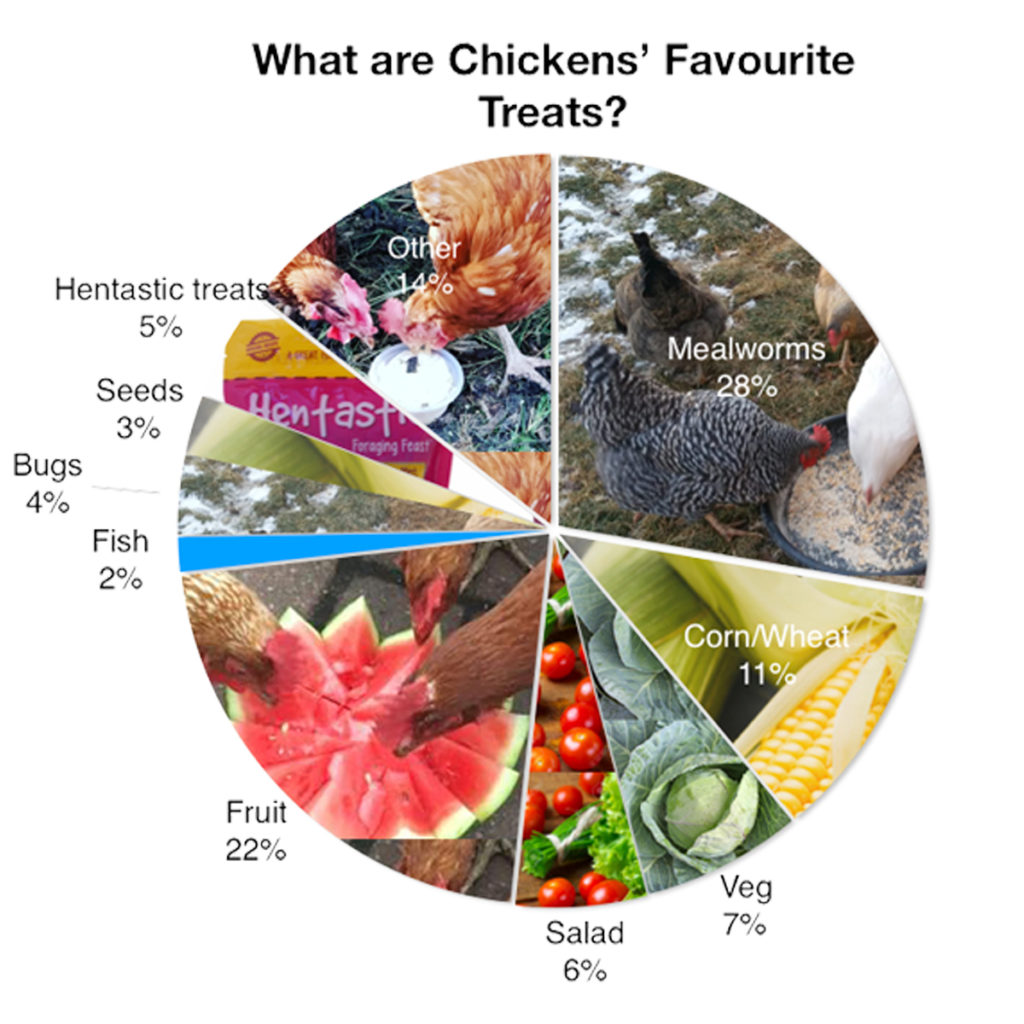Chickens are one of the most popular animals kept by backyard farmers and homesteaders. But, what is the best food to feed them? Knowing what chickens’ favorite food is, and understanding the basics of chicken husbandry, can help you raise healthy, happy chickens and provide them with a nutritious diet. In this article, we will explore the best food for chickens and discuss the basics of chicken husbandry. From understanding their dietary needs to the best way to keep them healthy, this guide will help you provide the best care for your chickens and ensure they enjoy their favorite food!
Types of Food for Chickens
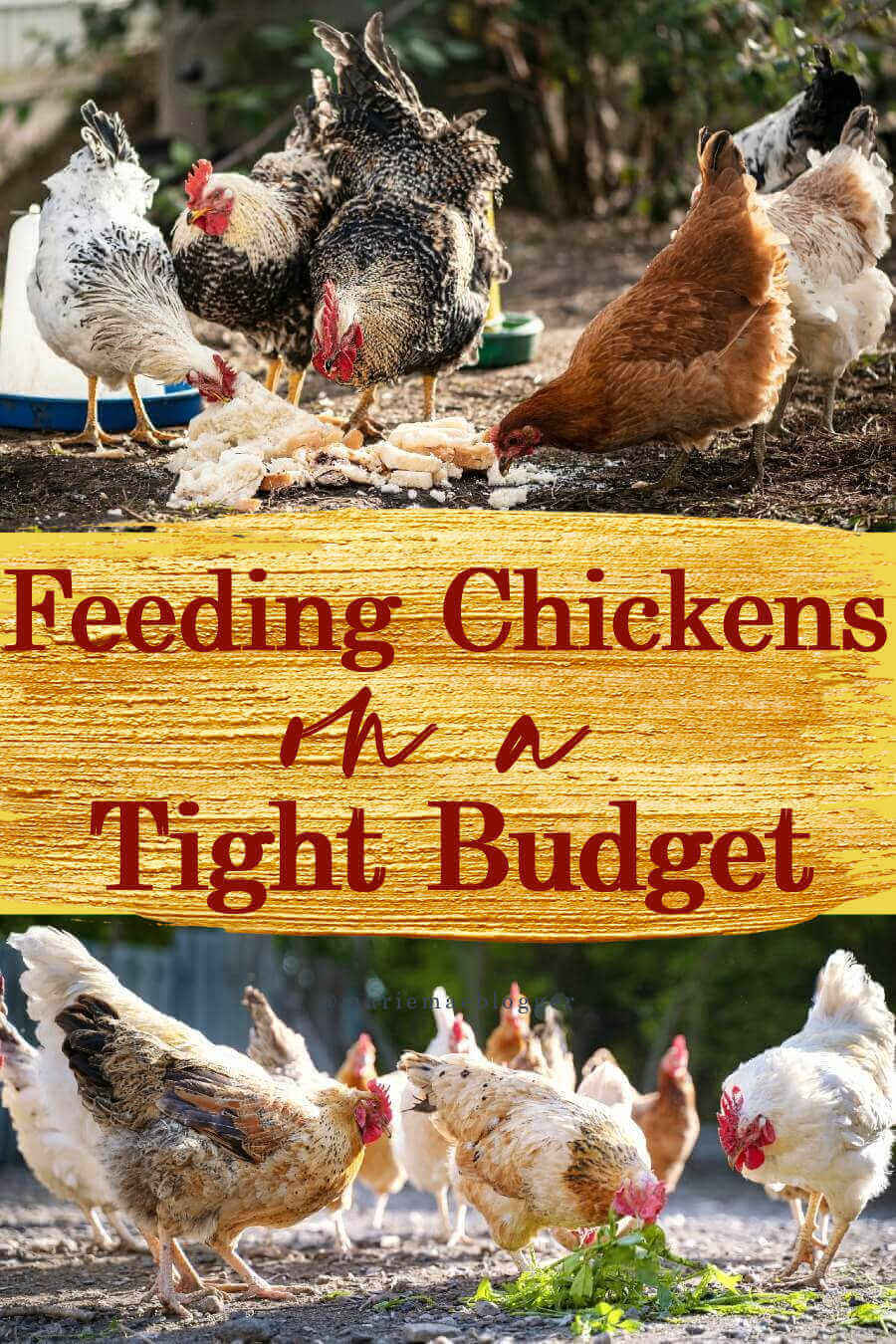
Grains
Grains such as wheat, oats, and barley are a good source of carbohydrates for chickens and should form the basis of their diet.
Greens
Chickens love greens such as lettuce, kale, and spinach. They also like fruits such as apples and melon.
Insects
Chickens are omnivores and will also eat insects such as mealworms, crickets, and grasshoppers. These should be fed in moderation as a treat.
Meat
Chickens can also eat small amounts of cooked meat, such as chicken scraps.
Dairy Products
Chickens can have small amounts of dairy products such as cheese and yogurt, as long as they are not lactose intolerant. These items should also be fed in moderation.
In conclusion, when it comes to what chickens’ favorite foods are, the answer is varied. Grains, greens, insects, meat, and dairy products can all be part of a healthy diet for chickens. However, it is important to remember to feed these items in moderation.
Nutritional Requirements
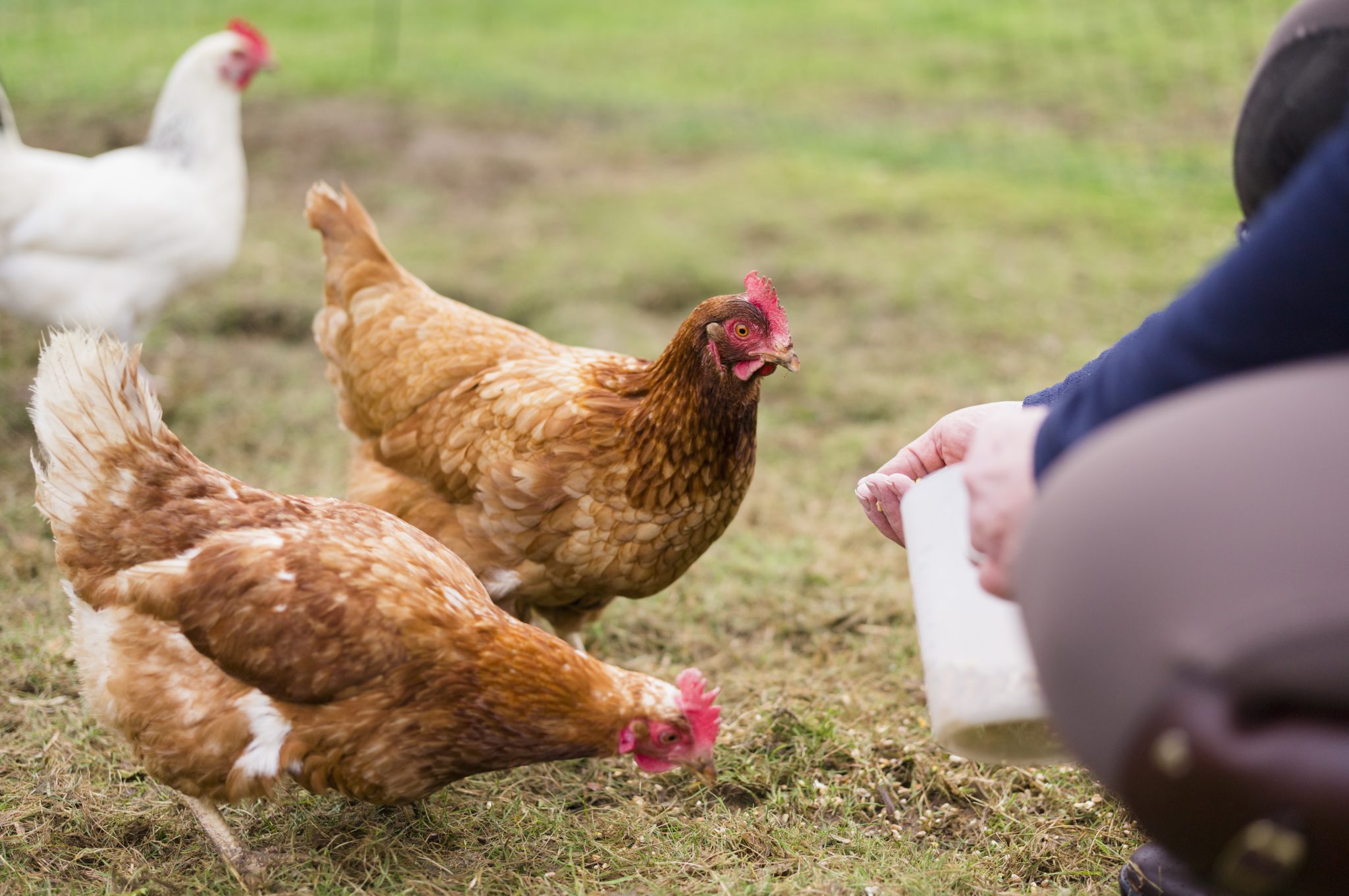
Chickens require a balanced diet of proteins, fats, carbohydrates, vitamins, and minerals for optimal health. A variety of foods, including grains, greens, fruits, and insects, provide the necessary nutrition for chickens. Grains such as corn, wheat, and oats are a major source of carbohydrates and are typically fed as a complete feed. Fresh greens provide important vitamins and minerals, while fruits and vegetables are a good source of energy. Insects, like mealworms, are a great source of protein and essential fatty acids which should be fed to chickens regularly. To ensure that chickens receive the nutrition they need, it is important to provide them with a variety of foods and to inspect their feeders regularly to make sure they are getting their chickens favorite food.
Chicken Feed
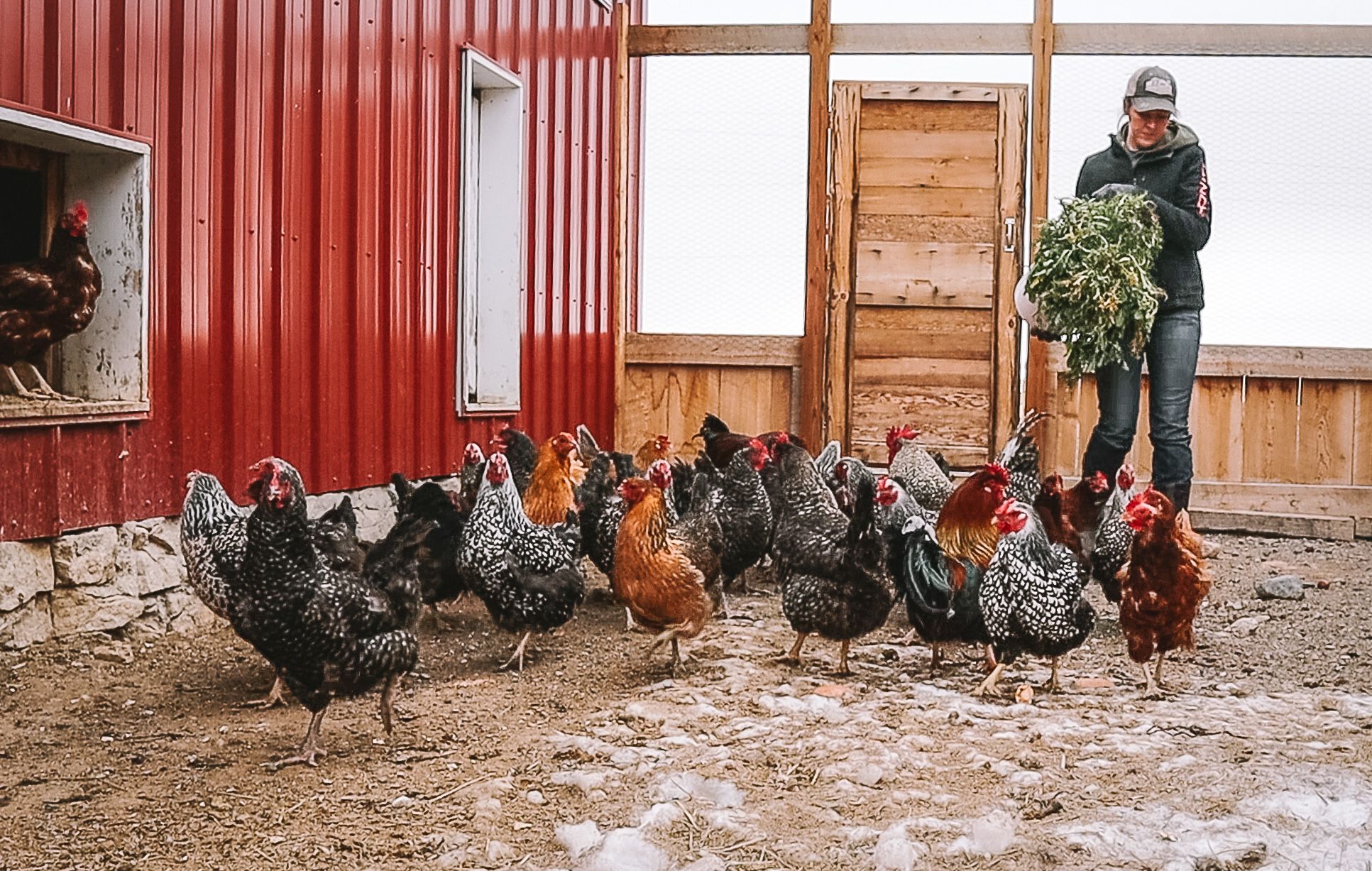
Chicken feed is an essential part of a chicken’s diet and should be chosen carefully in order to provide adequate nutrition. Feeds are available in various forms, such as pelleted, mash, crumbles, and grains. Pelleted feed is the most common form of feed available, as it is easier for chickens to digest and contains all the necessary nutrients. It is important to ensure the feed is fresh and free from mold or pests. Grains like wheat, barley, corn, and oats provide additional nutrition, but need to be supplemented with other sources of protein and calcium.
In addition to feed, chickens may also need to be supplemented with vitamins, minerals, and other supplements. Certain supplements such as probiotics, electrolytes, and other additives may be beneficial to chickens, depending on the individual needs. Supplements should be chosen carefully and used in moderation, as they can potentially cause health problems if overused or used improperly.
Table 1: Essential Nutrients in Chicken Feed
| Nutrient | Function |
|---|---|
| Protein | Supports growth, feathering, and egg production |
| Calcium | Supports bone health and eggshell formation |
| Vitamins and Minerals | Supports growth, feathering, and egg production |
| Fats and Oils | Provides energy and supports feathering |
| Fiber | Supports digestion and gut health |
Feeding Frequency
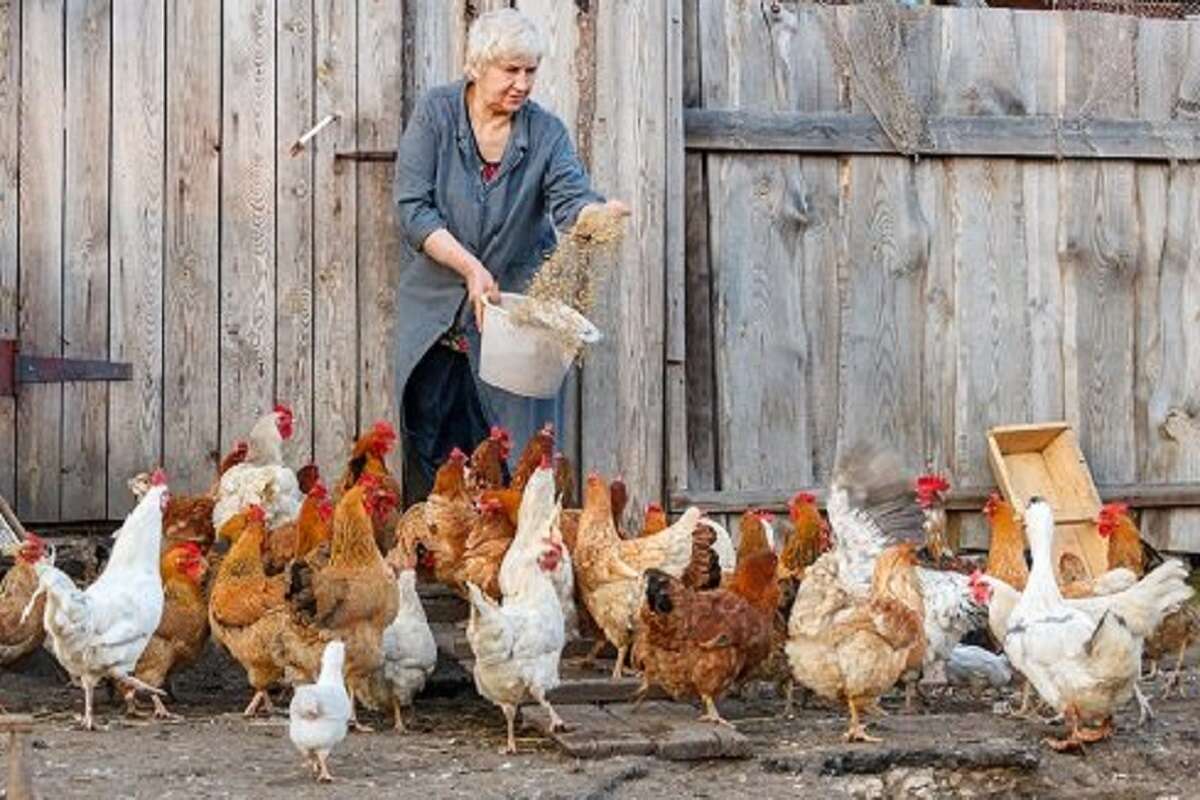
Chickens require frequent meals to maintain their energy levels and health. It is recommended to feed chickens at least 3 times a day, with most breeders feeding their chickens twice a day.
| Age | Feeding Frequency |
|---|---|
| Chicks (0-6 weeks) | 4-6 times a day |
| Young chickens (6-20 weeks) | 3 times a day |
| Adult chickens (20+ weeks) | 2 times a day |
Chicks should be fed 4-6 times a day, young chickens should be fed 3 times a day, and adult chickens should be fed 2 times a day. The amount of food should also be adjusted to match the age of the chickens. It is important to provide chickens with a balanced diet, especially during the first 6 weeks of their lives.
Water Requirements for Chickens
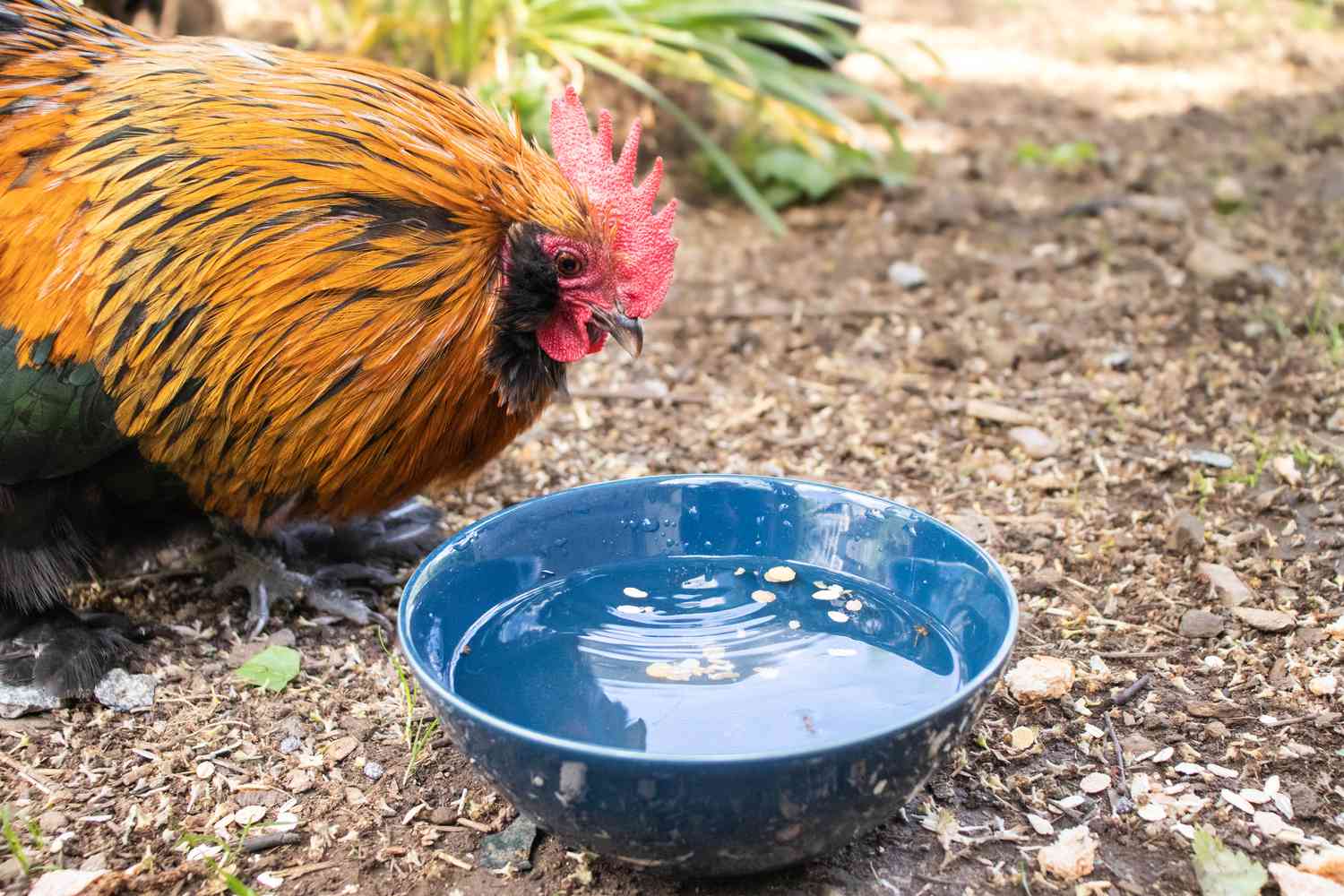
Chickens need fresh, clean water available at all times for optimal health and growth. They need 1 to 2 litres of water per day, depending on the size of the flock. The water should be placed in a clean container and changed regularly to prevent contamination. A water heater can be used in colder climates to prevent the water from freezing in the winter months.
It is important to ensure that the water is not contaminated with any chemicals, as this could cause health issues for the chickens. If the water is going to be used for drinking, it should be treated with a water sanitizer to remove any potentially harmful bacteria.
Table 1: Water Requirements for Chickens
| Number of Chickens | Daily Water Requirements (litres) |
|---|---|
| 1-5 | 1 litre |
| 5-10 | 1.5 litres |
| 10+ | 2 litres |
Housing for Chickens
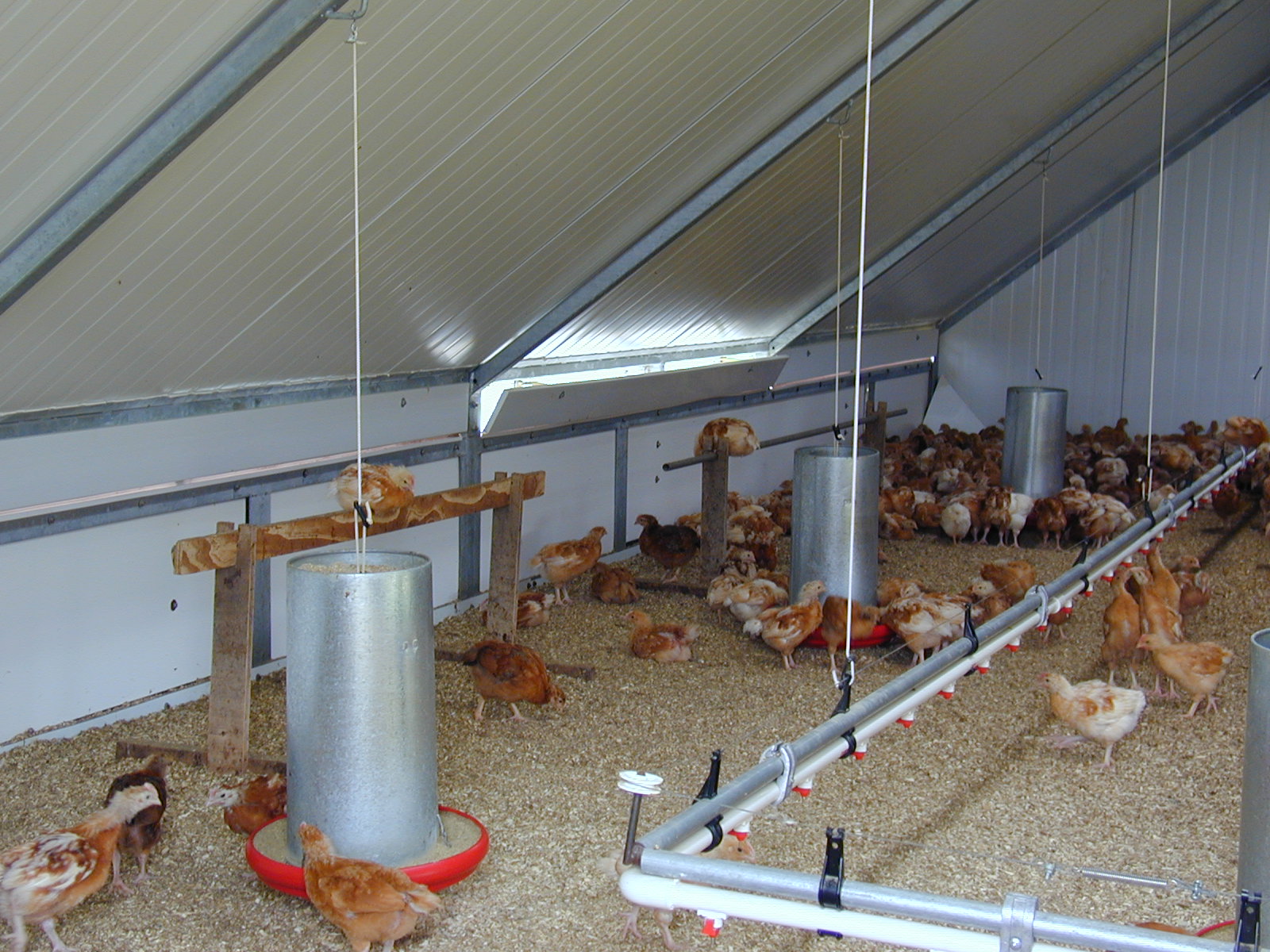
Chickens require a safe, secure, and well-ventilated environment to live in. The housing should be large enough for the number of chickens living in it, and preferably with a sheltered area outside the coop. The coop should be well-ventilated, with an open roof and sides, and should provide shade during hot weather. It should also have a secure and predator-proof entrance. The coop should also have perches and nesting boxes, as well as an area for the chickens to roam in. Bedding material such as straw, wood shavings, or hay should be provided in the coop to absorb moisture and provide a comfortable environment. The bedding should be regularly changed to ensure a clean and hygienic environment.
Temperature Requirements

- Room Temperature: Chickens require a temperature of between 18 and 22 degrees Celsius for comfortable living.
- Winter Temperature: Chickens are able to withstand cold temperatures, however, they need to be kept warm in winter to maintain their body temperature. This can be achieved by providing insulated shelters or bedding.
- Summer Temperature: During summer, chickens need to be kept cool to prevent overheating. This can be done by providing them with shade, a cool resting area, and plenty of fresh water.
- Heat Stress: If temperatures exceed 28 degrees Celsius, chickens may suffer from heat stress, which can damage their health, leading to reduced egg production, weight loss, and even death.
Handling and Restraint of Chickens
Chickens are easy to handle, but it is important to know the right technique. To pick up a chicken, hold it in one hand, close to the body, with the other hand supporting the breast. The wings should be tucked slightly against the body. Alternatively, use both hands to support the wings and the breast. The chicken should be securely held, but not too tightly, in order to avoid injury.
When restraining a chicken, never hold it by the wings. This can cause feather loss or break the wing bones. It is also important to support the chicken’s feet when restraining it, as this will help to reduce the stress of being held.
It is also important to be aware of the chicken’s “flight zone”. This is the area around a chicken that it considers its personal space. When a person enters the flight zone, the chicken will become nervous and may try to escape. To avoid this, approach the chicken slowly and gently.
What do chickens love to eat? Chickens enjoy a wide variety of foods, including fruits, vegetables, and grains. They also love to eat insects, such as worms, grubs, and mealworms. Additionally, they will search for and eat seeds, grasses, and weeds. A balanced diet of chicken feed, fresh fruits and vegetables, and occasional treats will ensure that your chickens stay healthy and happy.
To ensure the safety of both you and your chickens, always practice proper handling and restraint techniques. When done correctly, handling and restraining chickens can be a safe and enjoyable experience for everyone involved.
Frequently Asked Questions
Is there a particular type of food that is best for chickens?
Yes, chickens’ nutritional needs are best met through a balanced diet of commercial layers pellets, grains, and greens. A quality commercial feed should provide the correct balance of nutrients, vitamins, and minerals. In addition, mealworms, insects, fruit, and vegetables can be offered as occasional treats. It is important to avoid overfeeding, as this can lead to health issues such as obesity.
How often should I feed my chickens?
Daily: Chickens should be fed daily with a balanced diet to ensure they are getting the necessary nutrition to remain healthy. The amount of feed required will depend on the age and size of the chicken. It is recommended to provide a cup of feed per chicken per day, with an additional quarter cup for every additional chicken.
Weekly: Once a week, offer chickens a handful of treated grains, such as oats, barley, or wheat. This will help ensure they receive the necessary vitamins and minerals they need to stay healthy.
Monthly: Feed chickens a high-calcium supplement monthly to ensure they get the calcium they need to lay eggs.
Yearly: Have a veterinarian check the chickens annually to make sure they are healthy and free of disease.
What type of housing is best for chickens?
- Outdoor housing: Outdoor housing provides a natural environment for chickens, allowing them to roam freely and forage for food. This type of housing is best for chickens in temperate climates, as chickens require protection from the elements.
- Inside housing: Inside housing is ideal for chickens living in extremely cold climates. This type of housing helps keep chickens warm and safe from predators.
- Mobile housing: Mobile housing is a great option for those wanting to keep chickens in a variety of different locations. This type of housing allows chickens to be moved around easily and provides protection from the elements and predators.
When choosing the best housing for chickens, it is important to consider the size of the coop and the number of chickens, as well as the local climate. It is also important to provide plenty of room for the chickens to move around and access to fresh air and sunlight.
How can I make sure my chickens are getting the nutrients they need?
Proper nutrition is essential for healthy chickens. A balanced diet should include a variety of foods such as grains, vegetables, and insects, supplemented with vitamins and minerals. High-quality feed should be provided in clean, dry feeders and should be free of mold, insects, and debris. Fresh, clean water should also be available at all times. To ensure that chickens are receiving all the necessary nutrients, having their diet regularly checked by a veterinarian or poultry specialist is recommended.
How can I encourage my chickens to lay eggs?
Provide Fresh Food and Water: Ensure that chickens have access to fresh food and water throughout the day. Give them a variety of foods, such as grains, fruits, and vegetables to ensure they receive all the nutrients they need.
Give Them Enough Space: Chickens need enough space to move around and forage for food. The ideal space for each chicken is about 10 square feet in the coop and 10-20 square feet in the run.
Install a Nest Box: Installing a nest box in the coop will give the chickens a place to lay eggs. The nest box should be filled with straw or other soft material to make it comfortable and private.
Keep the Coop Clean: Maintaining a clean coop is essential to encourage egg laying. Clean the coop regularly, paying particular attention to the nest boxes.
Provide Adequate Light: Chickens need 14 to 16 hours of light per day to lay eggs. If your chickens are not getting enough light, consider installing a light in the coop.
Monitor Stress Levels: Stress can cause chickens to stop laying eggs. Check for signs of stress in your flock, such as feather-picking or fighting, and take steps to reduce stress.
Provide Supplements: Provide calcium supplements, such as crushed eggshells or oyster shells, to ensure that your chickens have enough calcium for strong eggshells.
Conclusion
Chickens are omnivores and require a balanced diet for good health. A variety of grains, greens, fruits, and insects are all good options to feed your chickens. Be sure to provide a constant source of fresh water and limit the amount of processed foods, as these can be unhealthy. Proper husbandry is essential to keeping your chickens healthy and happy.
References
- Feed Chickens Quality Feed – PoultryDVM
- How to Provide Proper Nutrition for Your Backyard Chickens – Iowa State University Extension and Outreach
- Animal Care Blue Book – Chickens – USDA Animal and Plant Health Inspection Service
